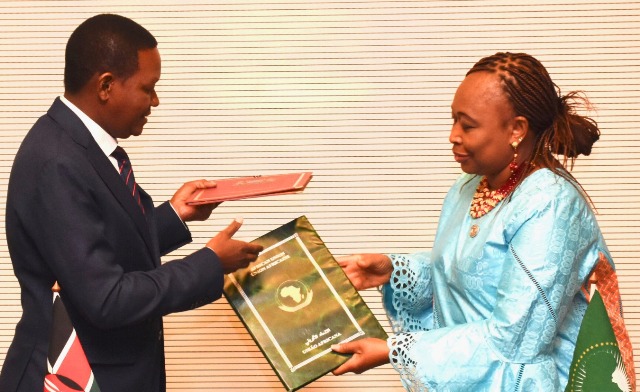By Irene Gaitirira
Published December 2, 2018
 East African Community (EAC) in partnership with United Nations Economic Commission for Africa (UNECA) has hatched a plan to tackle increasing level of energy insecurity affecting the region.
East African Community (EAC) in partnership with United Nations Economic Commission for Africa (UNECA) has hatched a plan to tackle increasing level of energy insecurity affecting the region.
“Deforestation, rising wood and charcoal prices, increasing imports of oil and gas are some of the symptoms of energy insecurity we face in East Africa. This framework will facilitate regional collaboration to collectively improve energy security,” said Andrew Mold, Acting Director of UNECA in East Africa, during a three-day conference in Kigali, Rwanda, in late November 2018.
RELATED:Kenya Airways and Ethiopian Connect Africa and North America
“Without affordable and secure energy supplies,” says Christophe Bazivamo, Deputy Secretary General of the East African Community, “we face hurdles of industrial development, and a growing dependency on imported energy that undermines our balance of payments and macroeconomic performance. Without energization, there will be no industrialization!”
RELATED:Initiative to Nurture African Movie Talent Invites Applications
 UNECA, that estimates that lack of secure electricity supply undermines the pace of growth by 2%-5% of the Gross Domestic Product (GDP), launched its Energy Security Policy Framework that focuses on the implementation of the African Continental Free Trade Agreement (AfCFTA) and called for more investment in energy infrastructure to increase trade relations on the continent and ensure the success of AfCFTA.
UNECA, that estimates that lack of secure electricity supply undermines the pace of growth by 2%-5% of the Gross Domestic Product (GDP), launched its Energy Security Policy Framework that focuses on the implementation of the African Continental Free Trade Agreement (AfCFTA) and called for more investment in energy infrastructure to increase trade relations on the continent and ensure the success of AfCFTA.
Due to over reliance on fossil fuels and a lack of refining capacity, UNECA says, petroleum imports amount to as much as 10% of GDP in East African countries.
RELATED:Nairobi Holds Drawings and Paintings Show
“About 90% of the EAC population also rely excessively on biomass (charcoal and firewood) for energy sources, leading to rapid deforestation and creating long-term risks to the security and sustainability of the energy supply,” UNECA says.
 EAC says its policy framework, on the other hand, aims at improving security and affordability of energy supply, and advancing the achievement of the Sustainable Development Goal 7 on universal access on clean, affordable, sustainable and reliable energy.
EAC says its policy framework, on the other hand, aims at improving security and affordability of energy supply, and advancing the achievement of the Sustainable Development Goal 7 on universal access on clean, affordable, sustainable and reliable energy.
The Energy Security Policy Framework “will provide guidance to member States on the measurement, monitoring and management of energy security in the biomass, electricity and oil and gas sub-sectors,” says Yohannes Hailu, a specialist in Energy at UNECA.





